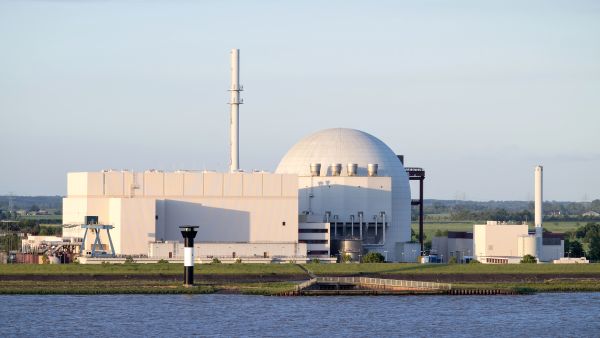ALBAWABA- Germany closed its last three nuclear power plants on Saturday, ending the country's nuclear era after over six decades.
Nuclear power has long been controversial in Germany, with supporters seeing it as a reliable source of low-carbon energy at a time when drastic cuts to planet-heating pollution are needed. In contrast, opponents want to end reliance on a technology they view as unsustainable, dangerous and a distraction from speeding up renewable energy.
Despite the controversy, the German government has been steadfast in its plan. “The position of the German government is clear: nuclear power is not green. Nor is it sustainable,” Steffi Lemke, Germany’s Federal Minister for the Environment and Consumer Protection and a Green Party member, told CNN.
“We are embarking on a new era of energy production,” she said.
The shutdown of the three plants is part of a plan that began more than 20 years ago, when the German government pledged to phase out nuclear power and begin shutting down plants.
Fukushima nuclear disaster in Japan in March 2011 was a turning point for Germany, with then-Chancellor Angela Merkel announcing that Germany would accelerate a nuclear phase-out, with older plants shuttered immediately. Critics of Germany's policy argue that it is irrational to turn off a low-carbon source of energy as the impacts of the climate crisis intensify.
The risk, according to Leah Stokes, a professor of climate and energy policy at the University of California, is that fossil fuels fill the energy gap left by nuclear. Reductions in Germany's nuclear energy since Fukushima have primarily been offset by increases in coal, according to research published last year.
However, supporters of the nuclear shutdown argue that it will ultimately hasten the end of fossil fuels.
“It is a great achievement for millions of people who have been protesting nuclear in Germany and worldwide for decades,” Paul-Marie Manière, a spokesperson for Greenpeace, told CNN.
Germany has pledged to close its last coal-fired power station no later than 2038, with a 2030 deadline in some areas. It's aiming for 80% of electricity to come from renewables by the end of this decade. The shutdown will also open the door for more investment in clean energy, according to representatives for Germany's renewable energy industry. The German government plans to replace the roughly 6% of electricity generated by the three nuclear plants with renewables, gas, and coal







